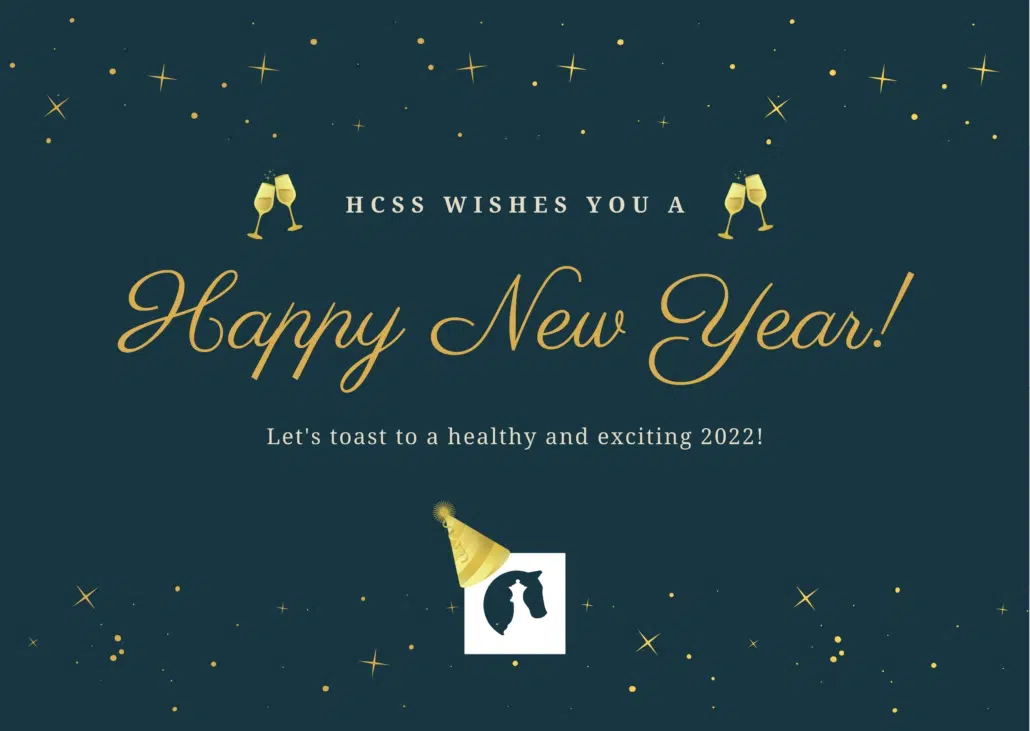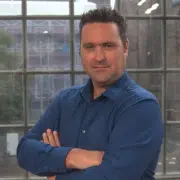In the final HCSS Digest of the year, we look back at 2021 with our Annual Report, analyze Putin’s tantrums and introduce our new Deterrence paper series.
As we find ourselves on the threshold of 2022, it is time to assess some of the transitions that are reshaping our geopolitical order. The HCSS Annual Report contains food for thought, as we focus on some of 2021’s highlights and on future developments in the world. This can help us to look ahead to a brighter future beyond the gloom of the daily headlines.
Deterrence Paper series
HCSS presents a new paper series on Comparing Deterrence in Europe and Asia, edited by Paul van Hooft and Tim Sweijs. How do the challenges to deterrence in Europe and Asia compare?
- In the first paper of the series, authors Eric Heginbotham and Richard J. Samuels of MIT’s Security Studies Program summarize the problems these regions face. “Pick Your Poison” identifies the severity of the deterrence problems in each regions and applies these to the following categories: Interests and objectives of the challenger, Overall balance of regional power, Location of contingencies within the region, Nuclear policy and escalation risk and Non-nuclear cross-domain threat.
- What strategies are available to small and middle powers in Europe and Asia to deter the increasing threat from Russia and China? According to Paul van Hooft, Nora Nijboer and Tim Sweijs, investing in conventional deterrence – specifically active denial strategies – is the more feasible route for these states, they conclude in the second short paper of our new series, “Raising The Costs Of Access”.
- The HCSS paper series “Comparing Deterrence in Europe and Asia” will continue with three more briefs in January 2022, followed by a concluding report.
Climate, Energy & Resources
Closing down nuclear power plants and coal-fired power stations, shutting down the Groningen gas field and stop financing investments in oil and gas? Then you shouldn’t be surprised if the gas price rises, HCSS energy expert Jilles van den Beukel told RTL Nieuws: wage the battle against fossil fuels on the demand side, not on the supply side.
The challenges facing the Netherlands require a vision of what the government wants to achieve. If there is no such vision, you will never get support for your policy. This certainly seems to apply to the agricultural sector, Rob de Wijk writes in his column for Nieuwe Oogst: try as he might, he couldn’t find a hint of a vision in the new coalition agreement.
What impact is the current turmoil in the energy market having on our economy? And in which phase of the energy transition are we now? HCSS energy expert Lucia van Geuns discusses this and more in BNR’s Big Five.
Are high gas prices a thing of the past, now that more liquefied gas (LNG) is on its way to Europe? HCSS energy expert Jilles van den Beukel explains to NU.nl: “The market takes into account that the European gas price will remain on the high side for at least another year and a half.” According to the analyst, the gas market is in such a state of flux that prices for delivery in the winter of 2022/2023 have already risen sharply.
In January 2022, the United Arab Emirates, Jordan and the Netherlands will organize a High-Level Summit on Water, Energy and Food security at the Dubai Expo. During the Summit, young people and governmental leaders will discuss practical solutions for water, energy and food challenges based on the Water Energy Food (WEF) game developed by HCSS.
Defense & International Security
Arms control is no longer just about nuclear weapons. New technologies require a new approach – think of artificial intelligence, cyber and space. What should that new approach look like? Listen to the new episode of our podcast De Strateeg on BNR Nieuwsradio, with Paul van Liempt discussing arms control with HCSS strategic analyst Lotje Boswinkel and Marjolijn van Deelen, special envoy of the European Union for non-proliferation and disarmament.
Analysts Paul van Hooft and Lotje Boswinkel recently looked at developments in integrated air and missile defense in Europe. Effective air and missile defense is a crucial component of any “active denial” strategy, they argued in the report “Surviving The Deadly Skies”.
- In a follow-up interview with newspaper NRC, Paul van Hooft argued that Europe should invest in conventional deterrence to reduce the role of nuclear weapons in Europe.
- The Defensiekrant also reported on the findings, and interviewed the authors: Europe has insufficient weapon systems and ammunition stocks to protect itself against complex attacks. That makes us extra dependent on the US. “Our current systems are limited and not prepared for large-scale conflict,” explains Van Hooft out. “At the most, the Netherlands can protect Schiphol or Rotterdam. Or the deployed units in the Baltic States.” Boswinkel elaborated: “Ballistic missiles or cruise missiles can now be directed to their targets with increasing accuracy. “With the same weapons you can now perform tasks that used to require a nuclear weapon.”
The military mission in Erbil, Iraq, has been extended by one year. HCSS defense expert Peter Wijninga explains in radioshow Blok & Toine what our soldiers are tasked with, and what the purpose of the mission is.
Putin’s Tantrums
The Kremlin is putting pressure on NATO: Moscow is demanding that the Western alliance withdraws from Eastern Europe and guarantees that Ukraine or other former Soviet states will never be allowed to join. In VPRO’s Bureau Buitenland, Rob de Wijk discussed Putin’s absurd demands.
“On the one hand, NATO is trying not to go along with that rhetoric. On the other hand, NATO should take that rhetoric very seriously again,” Han ten Broeke elaborated on WNL’s Goedemorgen Nederland. “It is very conceivable that if Putin puts his words into action, there will be NATO countries that supply weapons, with the aim of preparing the Ukrainian army as best as possible.” In this way it will become economically unattractive for Russia to launch an invasion, and Putin will have to think twice about it.
Foreigners wishing to stay in Russia for more than 90 days must undergo a strict medical examination every three months. Anyone who is not physically or mentally healthy must leave. “It indicates that Russia sees foreigners as sick and weak people. This kind of symbolic politics does further damage to the economy. It also leads to more propaganda and depressiveness”, says HCSS Russia expert Helga Salemon at NOS Met het Oog op Morgen: “With this law, Russia can tackle someone very easily. It can be applied if it suits the Russian authorities. That leads to corruption and chaos.”
In recent years it seems Russian attempts to undermine Western political, economic and societal structures. But how does Russia think that the West tries to influence Russia through proxies? And who are the perpetrators according to Russia? In other words, who is ‘the West’? Assistant Analyst Philip Geurts, Stephan de Spiegeleire and Frank Bekkers, with support from HCSS Team Ukraine, analyze that question in their latest brief, Western Proxies Through Russian Eyes.
Geopolitics & Geo-economics
Europeans, and especially the Dutch, are fond of their principles. But China and Russia are playing a power politics game, where our value politics no longer have any effect. That will take some getting used to for Europeans, Rob de Wijk writes in his column in Trouw. Putin and Xi know that there is little we can do: we cannot do without Russian gas, the energy transition is impossible without Chinese technology. Moreover, the neglect of our armed forces has left us wide open to their military adventurism.
A minister of European Affairs in the new Rutte IV cabinet? “It’s not a bad idea to have someone next to the prime minister who can coordinate the negotiating positions between the various ministries,” HCSS Director of Political Affairs Han ten Broeke commented at BNR Nieuwsradio’s Europa Podcast. “France, Germany, Belgium, Italy and Poland are already doing this very successfully.”
In addition to military power, geo-economic power is playing an increasingly important role, Rob de Wijk emphasizes in the Financieele Dagblad: “Europe must dare to use its economic power more in conflicts. But this requires a total restructuring of the armed forces.”
Europe’s geopolitical environment is evolving. In response, the EU is inclined to pursue a more independent and assertive international role, but many questions remain about the future of European strategy. In this HCSS Forum, thirteen scholars, from a wide variety of national and disciplinary backgrounds, address key challenges for European strategy, including in the areas of defense, trade, international norms, energy diversification, and relations with other major powers.
“Old political leaders must make way for a new generation that is committed to more international cooperation. With a long-term vision of how a country should develop. That’s necessary in times of major global changes”, Paul van Liempt quotes Rob de Wijk in his latest column for ChangeInc.
All The Rest & All The Best!
Warm up by the fireplace with the HCSS Christmas Bookshelf! Every year our analysts and interns recommend a curated selection of the finest literature to get you through the long, cold winter. You can now find the full list on our website.
Students pay attention: start your year right and apply for the General Intern Program at HCSS, offering you an excellent springboard for future careers in a wide range of fields! So if you’re lying on the couch on Saturday morning, in hangover mode and with an oliebollenbelly, you might as well start writing that application…
That’s it, the final HCSS Digest of 2021. Of course we will be back in 2022, continuing to offer you an easy-to-read roundup of all our latest publications and everything our analysts and experts had to say in the (inter) national media on geopolitics, global challenges and international security issues worldwide.
On behalf of everyone at The Hague Centre for Strategic Studies, I wish you a Happy New Year!





